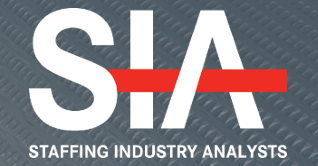27 August 2021
The UK Home Office announced that it has decided to postpone the date for the end of the Right to Work Covid-19 adjusted checks to 5 April 2022.
The temporary Covid-19 adjusted digital right to work checks were set to end on 31 August 2021.
“Following the positive feedback we received about the ability to conduct checks remotely, we initiated a review of the availability of specialist technology to support a system of digital right to work checks in the future,” the Home Office stated. “The intention is to introduce a new digital solution for those unable to use the Home Office online checking service, including UK and Irish citizens. This will enable checks to continue to be conducted remotely but with enhanced security. We are nearing the completion of our review and will provide further information on it, including next steps in due course.”
According to the Home Office, the delay ‘ensures the Right to Work Scheme continues to operate in a manner which supports employers to implement long-term, post-pandemic working practices.’
From 6 April 2022, employers will revert to face-to-face and physical document checks.
Chief Executive of the REC Neil Carberry said, “This is great news for recruiters and hiring businesses all over the country. Digital right to work checks have been a resounding success during the pandemic, allowing companies to hire quickly and safely as well as improving compliance. It makes complete sense to extend their use, especially considering the unprecedented labour shortages we are experiencing now.”
The Association of Professional Staffing Companies (APSCo) welcomed the delay to in-person Right to Work Checks.
Tania Bowers, Legal Counsel and Head of Public Policy at APSCo, said: “APSCo and its members are pleased that the Home Office has taken on board the feedback shared by ourselves and other representatives of UK employers and have delayed the return to in-person RTW requirements. While we look forward to seeing the results of its longer-term review, we hope that the success of the digital processes over the last 18 months leads to a more appropriate and modern method of managing Right to Work checks.”
Background screening and identity services firm Sterling also welcomed the delay and has urged that the extended period is used to drive permanent change in the process.
Steve Smith, Managing Director EMEA, Sterling, said, “The delayed return to in-person RTW checks is welcome at a time when there’s still a wealth of uncertainty and numerous businesses still working in a remote capacity. However, it is our hope that this isn’t a temporary extension and that the Home Office uses the time to develop a more permanent solution that utilises the digital progress that we saw work so well during lockdown.”
“We know that a lot of effort went into getting the Right to Work share code process in place over the course of the pandemic and this proved immensely valuable at a time when in-person verification simply wasn’t viable,” Smith said. “However, this digital move delivered a number of other positive results, streamlining checks for some and expanding the reach of recruitment activity as a worker’s location became less important – a critical element in a skills short market.”
“Perhaps more importantly, though, the right digital tools can reduce potential errors in the process. With increasingly sophisticated methods of fraud being utilised, technology can, in some instances, be more accurate than human verification. We look forward to seeing the Home Office’s recommendations over the coming months.”
Credit: Source link











